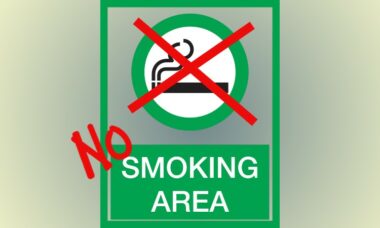
Health and science


Call for harm-reduction approach to tobacco alternatives regulations…
23rd October 2024 - Alerts | Asia, Bangladesh |


Innovation urgently needed in smoking cessation treatments, say FDA and NIH
17th October 2024 - News analysis |
Improved smoking cessation treatments and more research on e-cigarettes are urgently needed, according to the US National Institutes of Health (NIH) and Food and Drug Administration (FDA)




Health ministry launches campaign about dangers of e-cigs…
16th October 2024 - Alerts | Asia, South Korea |

Southeast Asia report highlights country’s tobacco control successes…
15th October 2024 - Alerts | Asia, Bangladesh |










Banning tobacco sales to youth may curb lung cancer mortality, WHO study finds
9th October 2024 - News analysis |
Policies that aim to create a tobacco-free generation may significantly prevent mortality from lung cancer across the world, according to recent research led by the World Health Organization





Health experts propose tightening tobacco restrictions…
1st October 2024 - Alerts | Asia, Bangladesh |


Government says it is anti-smoking, not necessarily anti-nicotine…
25th September 2024 - Alerts | Australasia, New Zealand |



Reduced-nicotine policies more effective if flavoured vapes stay, suggests US study
18th September 2024 - News analysis |
Banning popular flavours to discourage youth vaping may jeopardise efforts to curb smoking rates in adults at risk, according to a study published earlier this month in the Journal of the American Medical Association

European Commission targets HTPs and vapes in major smoke-free expansion
18th September 2024 - News analysis |
The European Commission is moving forward with a groundbreaking proposal to expand smoking restrictions, targeting heated tobacco products (HTPs) and e-cigarettes alongside traditional smoking

US teens’ use of pouches stays stable despite increase in sales, survey finds
12th September 2024 - News analysis |
The use of pouches among US teenagers remained stable in the past year despite the constant increase in their sales, based on the recently released National Youth Tobacco Survey


EU environmental trackers, August 2024
12th September 2024 - Heated tobacco regulatory data , Regulatory data |
This tracker covers sustainability policy proposals affecting the tobacco and nicotine sectors in the European Union and will be updated regularly


Is the Czech government out of sync with its own addiction-prevention strategy?
5th September 2024 - Blog |
Just over a year after the Czech government unveiled a new, ambitious action plan to fight addictions, doubts are being raised over the government’s alignment with its own declared war on addictions

What changes are in store for nicotine alternatives in a post-cessation world?
3rd September 2024 - News analysis |
It’s beginning to look like the well of smokers who have not tried vaping is running dry, and this has dramatic implications for the sector, its approach, and the way others interact with it

Kenyan bill seeks stricter tobacco regulations, jail time for violations
2nd September 2024 - News analysis |
In a landmark move aimed at bolstering public health and tightening regulations on the tobacco industry, the Kenyan parliament is proposing three-year jail terms for individuals promoting nicotine products, including pouches and vapes




E-cig retail licence rules may affect youth tobacco consumption, US study finds
30th August 2024 - News analysis |
Laws requiring licences for retailers to sell vaping products might not be effective in reducing youth access to e-cigs, but they may affect youth tobacco consumption behaviour, a US study has found


Canadian health minister puts pouches behind the counter and restricts flavours
26th August 2024 - News analysis |
In a bid to discourage young people from using nicotine pouches, Canada is imposing tough new restrictions, including limiting sales to pharmacies and flavours to mint and menthol

Researchers look into impact of smoking and vaping to uncover effects of dual use
23rd August 2024 - News analysis |
Is smoking and vaping worse than just smoking, or is it potentially beneficial for those addicted to combustible tobacco use, who may, at some point, quit it completely?


Lead next-gen innovation with consumer rather than regulatory focus, advises CRO
23rd August 2024 - News analysis |
Businesses that lead product innovation with what the consumer wants will be one step ahead when it comes to taking a next-generation product to market – particularly when making PMTAs in the US

Weekly regulatory podcast: August
12th August 2024 - Regulatory alerts podcasts |
Our weekly podcast brings you a summary of the TobaccoIntelligence daily alerts, covering key developments in law and regulation surrounding novel nicotine products

US study suggests vaping combined with smoking may increase risk of lung cancer
8th August 2024 - News analysis |
Tobacco smokers who also use e-cigarettes may be exposed to higher health risks than those who only use traditional cigarettes, but scientists are reluctant to put the blame on vaping





